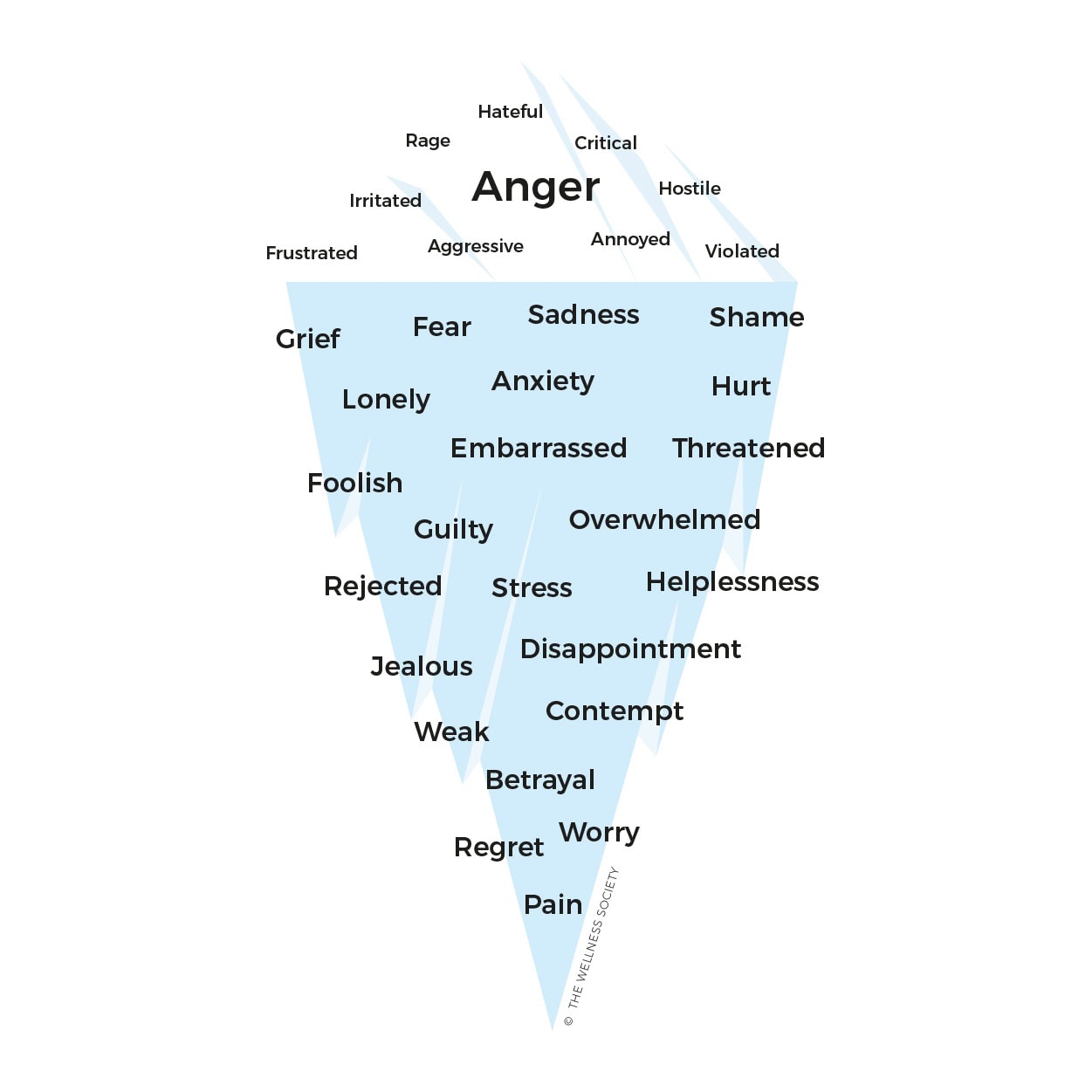
Anger is a normal, human emotion, but it’s never out first response to something. Anger is a secondary feeling, triggered by another experience – like failure, fear of rejection, injustice, or loss of control.
Like an iceberg, the experiences that lead us to have an angry outburst are deep and complex. We can only see a small amount above the surface. But when we don’t understand this, we assume our anger is just…anger. It becomes our identity, a badge of honour, or our fatal flaw. This is because how we feel it depends on how it was modelled to us growing up.
Family of Origin
Did you grow up in a religious household? You may have been taught that anger was wrong, or something to be ashamed of.
If you grew up with an angry or aggressive parent figure, you may believe that anger is the only way to deal with conflict – so you avoid it at all costs.
Did you see or experience injustice, abuse, or bullying as a child? For you, anger may be seen as the only way to restore justice or help the underdog.
However anger was (or wasn't) modelled to you, you may struggle now to process these emotions as an adult. This can lead to eruptions of rage, internalised hatred, or outbursts. In some cases, you might not even realise you sound angry, but the people around you point it out or act afraid.
What is you anger trying to tell you?
These are just a few examples of how we might understand anger. But today is your chance to wipe the slate clean. Anger isn’t good or bad. It is just…an emotion. And like all emotions, it’s telling us something. So before it consumes you, or you try to suppress it (that will only work for so long), take a pause. What is your anger trying to tell you?
When we have time and space to process our emotions in therapy, we can find the root of our anger. But in the moment, it’s a lot more difficult, isn’t it? When we are triggered, or someone crosses the line, our body and brain can lose all sense of control. We are quickly swept up in a wildfire of aggression, frustration and power. We need to get it out, and the people around us are often our first target.
In those moments, we NEED to release our anger. But we have to find creative ways to do this that keeps us, and the people around us, from harm. Otherwise, our anger is controlling us, and we become its victim.
Ways to regulate
Before you lash out in anger, try these activities and see which ones help you to regulate:
- Do some form of physical exercise. try running, boxing, lifting weights, go as hard as you need too without injuring yourself.
- Get some space away from people and go for a walk, leave the room, or go for a long drive.
- Practice mindfulness or breathing exercises.
- Talk to someone you trust, if no one is available, call Lifeline in Australia on 13 11 14.
- Listen to music that soothes you, or that helps you release your aggression in a contained, safe way.
- If you are tempted to suppress your anger and numb (eg. Through alcohol, self harm or sex), get a sheet of paper or your notes app, and scribble down your thoughts and feelings.
- Draw, paint, or scribble, make music, or write a letter and burn it. If you choose to write a letter or text, keep yourself from sending it for at least 24 hours, so you have time and space to gain clarity.
Is anger controlling you, or are you controlling it? We want to help. Contact Duncan on 0434 331 243 for a free 10 minute consultation or book online here.
